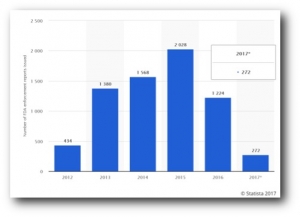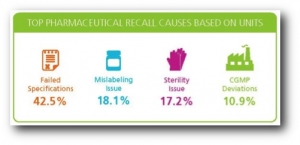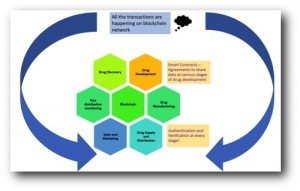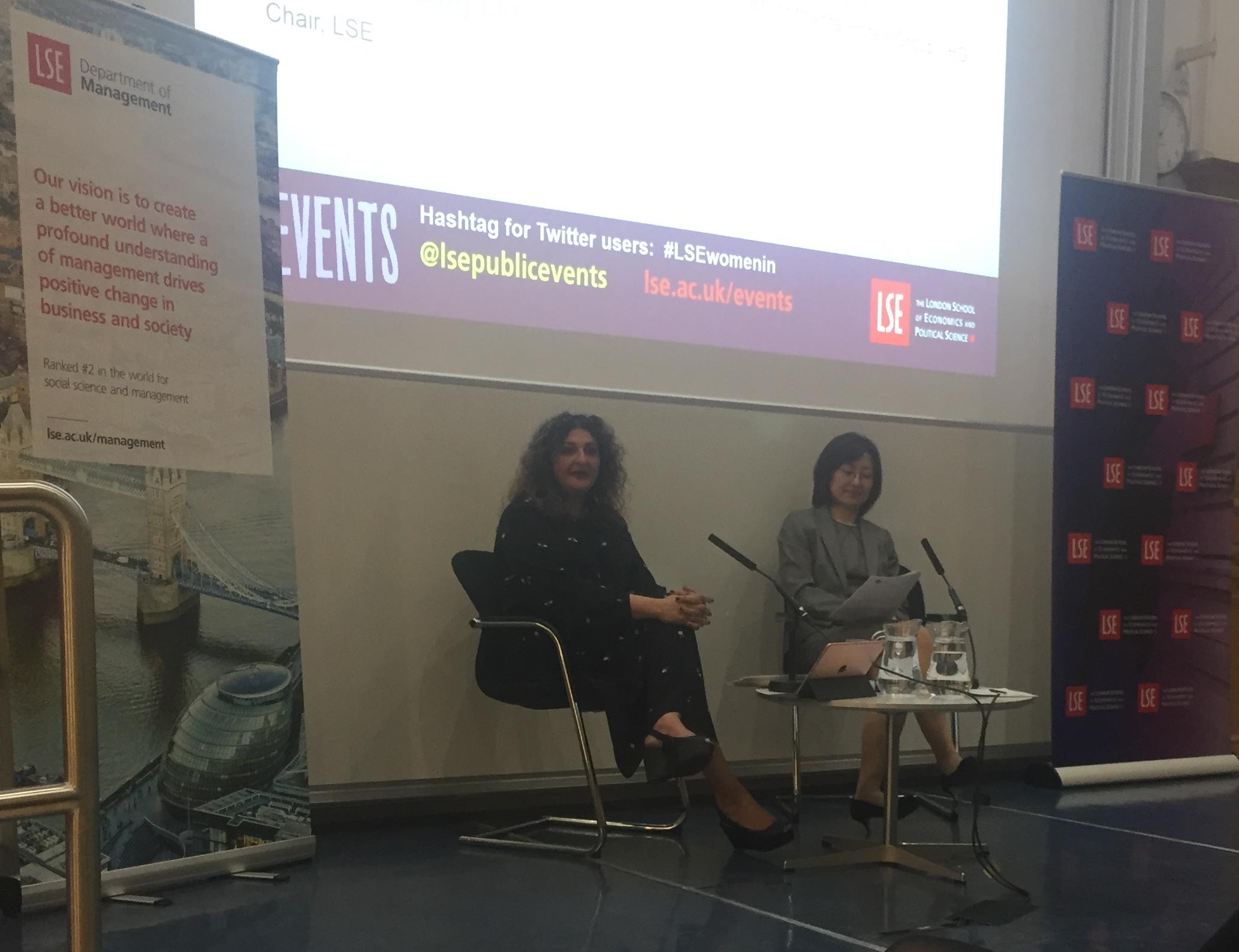Few people are aware of it, but releasing a new drug is a risky and painstaking process. Dr. Arti Thapliyal, a student on the MSc Social Innovation and Entrepreneurship programme, outlines how blockchain technology could overhaul the slow, laborious and uncertain manner in which new drugs are developed – and how it could shake up the healthcare industry.
Have you ever paid attention to the time, effort and business risk it takes to invest in new drug research and getting that drug into to the market?
It takes two to five years to come up with a new drug concept – and even longer to transform it into a lead drug candidate. It takes another two years to convert two or more of these lead drug candidates into a clinical trial success.
There’s more. It takes another three to five years for safety and efficacy studies and additionally another three to five years spent in multicentre registration studies. That adds up to 10-17 years spent getting a single drug successfully to market. These are serious numbers! Now for the reality check. After spending so much of time and taking such a huge investment risk into drug R&D, a drug recall can spoil the game. A sum total of 2028 drugs were recalled in 2015, followed by 1224 drugs in 2016 and 272 drugs have been recalled so far 2017 (we’re still awaiting the latest numbers). Source: FDA

Common Causes
The main reasons for this drug crack down and soaring drug recalls as per FDA are as below:

A Case of Blockchain in Clinical Trials
With such a challenging business model, we need a technological solution which can validate the results of clinical trials and make sure all the reasons for drug recall while the drug is into trials and is being manufactured can be effectively and efficiently mitigated. Blockchain can act as a preventive control. Let me explain how.
Blockchain is a secure digital ledger which has the unique ability of validating large amount of data and update it near real time for all participating peers (business players/units) on its network. The person validating and accessing the data at every stage of clinical trial and drug discovery will have a unique identification key (public and private key) to verify the data. The data transfer through every stage is transparent, secure and is peer-reviewed.
As the drug passes through the four stages of clinical trial, blockchain technology and its security architecture can verify every input and output from all the stages of clinical trials, with progress to next stage dependent on whether it meets the required standards or drug efficacy, efficiency, product specification, substance specification and other expected results.
Thanks to multi-party computation, all the stakeholders can validate the results of clinical trials and hence assure all drug specifications are correct: that CGMP (Current Good Manufacturing Practice) regulations are met to assure drug quality, sterility causing factors avoided and easily avoidable errors like mislabelling are handled well. All the transactions are cryptographically verifiable with proof of agreement from the participants. Cryptography is used to ensure that blockchain network participants see only the parts of the ledger that are relevant to them, and that transactions are secure and authenticated.
Unlike traditional databases which are centralized, Blockchain is a distributed database. It can eliminate data inconsistencies and provide resilience through replication. Hence use of blockchain in Drug R&D and clinical trials can mitigate the number of inefficient and faulty drugs reaching the market, making the drug development process more trustworthy and error-free, thus reducing drug recall numbers. It will finally make drug R&D investments more secure and profitable. And most important will save the side-effects and inconvenience caused to patients due to drug not matching the expected outcomes or causing harm instead!
The use of blockchain in pharmaceutical clinical trials is still very experimental, and has been only tried at prototype levels. But considering the trends in the market, the innovative use of this next-gen technology in clinical trials will be a future game changer.
Learn more about the MSc Social Innovation and Entrepreneurship programme








1 Comments